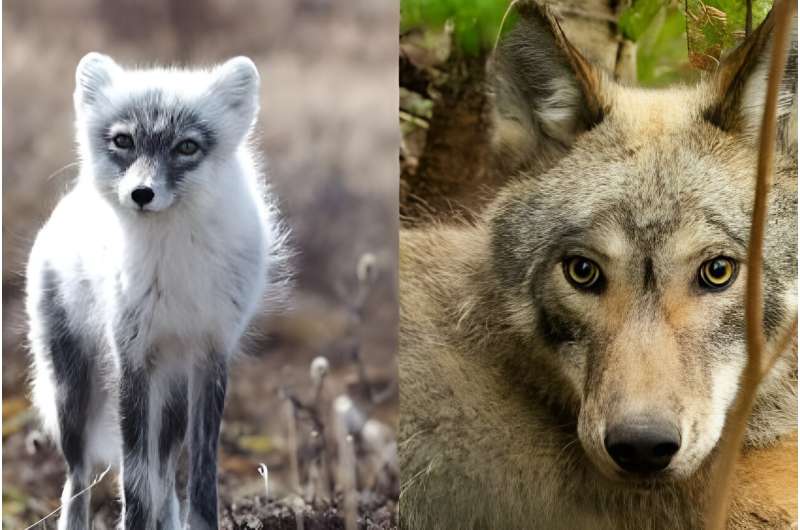This article has been reviewed according to Science X's editorial process and policies. Editors have highlighted the following attributes while ensuring the content's credibility:
fact-checked
peer-reviewed publication
trusted source
proofread
Predators play irreplaceable role in ecosystems

New research recently published in Oikos shows that predators play a unique and important role in ecosystems by creating "ecological hotspots"—localized areas important for plants and animals.
Traditionally, predators have largely been thought to impact ecosystems only when they reduce the number of prey through predation, or change the behavior of prey by instilling fear.
"We've known for some time now that predators have unique effects on ecosystems," said co-author Tom Gable, postdoctoral researcher in the University of Minnesota's College of Food, Agricultural and Natural Resource Sciences. "Even so, most of the research has been focused on understanding how predators affect ecosystems by altering prey populations. In reality, there are a whole host of other, lesser-known ways that individual predators can leave a distinct imprint on ecosystems."
The researchers found:
- Killing large prey can create ecological hotspots. Once predators make a kill, the carcasses of large prey often become a buffet for other predators and scavengers like vultures and ravens. These scavengers often compete for access to the carcass, leading to fierce battles over the rotting, but nutritious, scraps of meat. As carcasses decay, the remaining nutrients from the flesh and bones flow through soils and are absorbed by nearby plants, ultimately boosting their nutrient content and growth.
- Predators also create ecological hotspots by repeatedly transporting prey remains (such as meat and bones) to a concentrated location like a den or nest—often referred to as "home sites." Adult predators often bring back prey remains to their home sites to feed their offspring. Over time, nutrients from the decaying remains and the predators' excrement accumulate. The steady build-up of nutrients can create profound ecological changes in these localized areas.
- Predators can prevent prey from radically altering certain habitats and therefore stop the creation of ecological hotspots. For example, wolves can prevent beavers from damming streams and creating ponds that turn forests into wetlands.
- Large carnivores can have greater hunting success at specific times and places. In other words, humans cannot readily replicate the role predators play in creating prey carcasses.
"Animal carcasses are important but often underappreciated sources of food and nutrients for animals and plants alike," said co-author Joseph Bump, a professor in CFANS. "Although animals die and their carcasses hit the ground continuously throughout the year from various mortality sources like disease and human hunting, predators like cougars, bears and wolves have a unique fingerprint on when, where and how many carcasses are generated."
The researchers note that it is becoming increasingly important to recognize and understand the full spectrum of roles that predators play in ecosystems in order to better manage and conserve their populations.
"As humans, we often like to think that we have the ability to mimic the ecological roles of predators, and therefore it may be okay to have some areas devoid of large predators," said Sean Johnson-Bice, lead author of the study and a Ph.D. candidate at the University of Manitoba. "However, our work shows that there is such a wide diversity of ways that individual predators affect ecosystems that we could never realistically replicate their effects across entire ecosystems."
The researchers hope that this research will ultimately help advance the conservation and management of predator populations, many of which are declining globally due habitat destruction, human encroachment, hunting and poaching, and climate change.
More information: Sean M. Johnson‐Bice et al, Patchy indirect effects of predation: predators contribute to landscape heterogeneity and ecosystem function via localized pathways, Oikos (2023). DOI: 10.1111/oik.10065
Journal information: Oikos
Provided by University of Minnesota


















